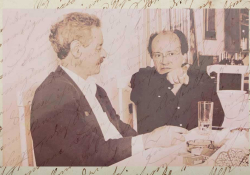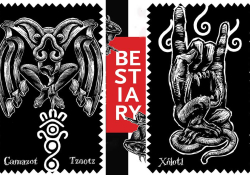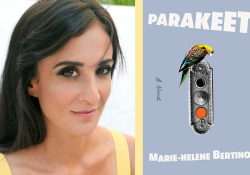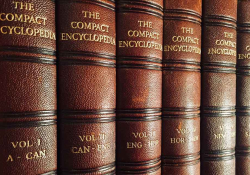David Grossman’s Comic Façade for Some Dark Realities

Politics, literature, and biography converge in David Grossman’s work, as self-mutilating clown Dovaleh G. brings the author and his translator the Man Booker International Prize amid persistent turbulence at home.
On June 14 David Grossman and translator Jessica Cohen were declared the winners of the Man Booker International Prize for the novel Sus Echad Nichnas Lebar (2014; Eng. A Horse Walks into a Bar, 2016). Besides being one of Israel’s most acclaimed authors—along with fellow nominee, friend, and mentor Amos Oz—Grossman is revered by the Israeli peace camp for his ever-eloquent calls for a possible solution to the Israeli-Palestinian conflict. Cohen, who has been Grossman’s English “voice” for a considerable time now, declared she will donate half her prize money to B’Tselem, the Israeli Information Centre for Human Rights in the Occupied Territories.
Enter the winning novel. Less overtly political than some of its predecessors, and with a plot that hinges on a somewhat sadomasochistic stand-up comedy routine, it is also possibly one of Grossman’s least translatable. Yet, on a closer look, the novel continues to probe into the universal themes that have been at the core of Grossman’s literary and public work. In Grossman’s domain, language can be both transformative and reductive, and while language can never wholly capture what is real, the author, the activist, and now, too, the translator, must devise a vocabulary that will narrow the gap between the authentic experience and its superficial public performance.
A Horse Walks into a Bar continues to probe into the universal themes that have been at the core of Grossman’s literary and public work.
It was, indeed, Grossman’s relentless quest for an “intimate grammar” that had established him as an articulator of the ineffable through two groundbreaking and contested works. The first, Hazman Hatsahov (1987; Eng. The Yellow Wind, 1988), began as a journalistic assignment in which Grossman, a promising novelist and fluent Arabic speaker, was commissioned to write a series of articles featuring the lives of Palestinians in the Occupied Territories. The articles were compiled into a best-selling book that provoked some lively responses. It wasn’t every day that an Israeli-Jewish writer had ventured into the territories, and for a young and talented storyteller with a burning conscience, this was an enticing opportunity to smuggle out some animated narratives from the people who were routinely regarded as the faceless mass from beyond the checkpoint. The Yellow Wind is now considered a preemptor of the Intifada (uprising) that was to begin soon after. For some, the book had catapulted Grossman to the status of a superstar activist and made a hero of this soft-spoken, humble man. For others, it denigrated him, alongside his friends and fellow literary giants Amos Oz and A. B. Yehoshua, to the ranks of the self-hating bleeding hearts, or “beautiful souls,” as the derogatory Hebrew expression goes. It is difficult not to contemplate whether, under the current Ministry for Culture and the Arts’ vision, this book would have been published today, but I will get to this a little later.
The second and more creatively daring work that has firmly established Grossman as a first-rate literary figure was his Holocaust novel, Ayen Erech: ‘Ahava’ (1986; Eng. See Under: Love, 1989). The Holocaust has been and remains a fraught and risky zone for interpretive artists and storytellers (See under: Roberto Benigni), and in early post-Holocaust Israeli society, most art on the subject as well as private retellings of memories were considered taboo, and survivors largely fell silent. Of course, there were earlier and worthy novels about the subject, but Grossman’s See Under: Love is considered seminal in that it spectacularly ignored the conventions of that time, which ruled realism as the only appropriate mode for representations of the Holocaust. With a postmodernist self-reflexive thread, the four-part novel experiments with various generic templates and Hebrew-language registers to exorcize the private torment of a descendant who had inherited his ancestors’ trauma and must find his own way of shaping this legacy into narrative. Its central question—how can one remember and commemorate the Holocaust?—provokes two ambitions: a creative search for the most appropriate literary method, and an innate urge to make sense of the incomprehensible. In its deeply personal and imaginative subversions, the novel stands out as a bold declaration that—to paraphrase Adorno—poetry is not only possible after Auschwitz; it is absolutely necessary.
Yes, man will have to be taken apart, limb from limb. And that which is called “life” will have to be vivisected down to its finest fibres, and put under a microscope lens. In order to neutralize scientifically that which can no longer be withstood, like “murder,” for instance, or “love,” until they are at last deciphered and stopped from causing such “pain” and “anguish.” (See Under: Love, 289–90)
Although the comparison is always controversial, it is permissible that the consciousness of the Holocaust, along with the motto “never again,” radiates onto some Jewish attitudes toward the Israeli-Arab conflict, and these attitudes range from an existential anxiety for the state of the Jewish people to the moral and ethical dilemma of subjecting a minority people to life under occupation. These tensions have propelled Grossman to destabilize simplistic notions of victim and perpetrator, and while his critics resent this tendency, for Grossman it is part of a broader, urgent philosophical investigation into the problem that underpins Holocaust discourse: Do all humans, given the right circumstances, have a capacity for evil? This question seems to impose on Grossman’s texts a vigilant, often alarmed, gaze inward, and much of his work, fiction and nonfiction, is also an interrogation of the contexts and conditions that cultivate the growth of evil.
Given to hope, however, Grossman eternalizes his characters, both fictional and otherwise, by adorning them with a unique and autonomous mind, body, and, most importantly, language. He is inspired by a little-known Jewish idea that a particular small bone in the body, the Luz (also, a nut), functions as a cache for the individual’s unique and indestructible essence. This idea recurs throughout Grossman’s work and surfaces in A Horse Walks into a Bar, when Dovaleh G., the novel’s stand-up comedian protagonist, invites an old childhood friend—now a retired judge—to watch his show in the hope that the judge could detect in Dovaleh
the inner glow, or inner darkness. The secret, the tremble of singularity. Everything that lies beyond the words that describe a person, beyond the things that happened to him and the things that went wrong and became warped in him. (63)
Herein lies Grossman’s lifelong project to capture, in words, that which precedes or is beyond language and which forms the essence of our humanness. Perhaps in a rebuttal to Chomsky, he yearns for an Internal Grammar (from the Hebrew title of his 1991 novel, Sefer Hadikduk Hapnimi) and to de-universalize language so that we can participate creatively in the act of articulating our own Luz, free from the constraints of lexical generalities. So, despite the comic’s attempts to repulse, deceive, and bewilder his audience, Dovaleh’s heart-wrenching performance, in which painful childhood traumas are punctuated by cheap punch lines, becomes a triumph of that unyielding self’s refusal to be entrapped within the prison house of performance and, paradoxically, of language itself.
Grossman, however, is undecided about the mind-body-language hierarchy, and it is precisely the unsettled location of the Luz, somewhere between anatomy and spirit, that Grossman returns to time and again in his ongoing investigation into the science of feelings. At times, the author suggests that our sense of the real is governed by our physical and sensual contact with the world. The judge-narrator, for example, is acutely attuned to every nuance of Dovaleh’s physical presence. In fact, a wordless dialogue between Dovaleh and the judge runs through the show as a parallel narrative. Clearly, the overflowing essence the judge is asked to look for comes from a place far deeper and more embryonic than the comedy script Dovaleh is struggling to stick to. Nevertheless, and without giving too much away, a story does emerge eventually, as primordial as the performer’s howls and groans, and it is a painfully evocative account of what goes on silently inside the mind of a child during a long car ride back to a home that he knows will never be the same. Then, as now, Dovaleh’s “private Chernobyl” (189) simmers beneath a distracting barrage of jokes and superfluous noises.
Dovaleh’s heart-wrenching performance becomes a triumph of that unyielding self’s refusal to be entrapped within the prison house of performance and, paradoxically, of language itself.
It is true that Grossman’s captivation with the phenomena of language, his wizardry with the shapes and sounds of utterances, not to mention his oversupply of domestic in-jokes, present some serious translational challenges. But if language is inherently one step removed from what is real, from that Luz which stirs us and makes us who we are, then the translator is positioned alongside, rather than in the shadow of, the author and his characters. Together and separately they must uncover an original proposition or sensation and fit it with the most flattering attire. Besides, translation, as his books remind us, is not only the task of paid professionals. The mundane search for linguistic equivalences to what is felt silently and abstractly is part of our lot as humans, and over the years, Grossman has created an entire community of characters with a shared desire to compose their own emotional lexicons, to chronicle their linguistic DNA, and to decode the intimate language of the other. The latter may also befit Grossman’s methodical and, it seems, ideological affinity with Cohen, and it is perhaps this closeness, as well as Cohen’s innate familiarity with Grossman’s idiosyncrasies, that has enabled her to execute so smoothly what is considered one of her trade’s most difficult challenges, the translation of humor.
When approaching the author’s recent work, it is important to be mindful of one biographical event that, it seems, Grossman himself urges us to consider both within and outside the pages of his novels. In the way in which the political often cruelly intrudes on the personal, Grossman has tragically lost his son, Uri, in a controversial military operation, only days after publicly calling on the Israeli government to cease fighting. At the time of Uri’s death, Grossman was finalizing the draft of his iconic, somewhat prophetic novel Isha Borachat Me’Besorah (2008; Eng. To the End of the Land, 2010), which tells the story of a soldier’s mother who flees from her home in order to escape the news of her son’s death. With her Schrödinger’s cat’s sensibility, and not unlike Dovaleh’s cognitive “stay of execution” during his long drive home, Ora first formulates her plan of escape out of a magical-thinking logic that “notifications always take two . . . one to give and one to receive—and there will be no one to receive this notice, and so it will not be delivered” (94).
Translation, as Grossman’s books remind us, is not only the task of paid professionals. The mundane search for linguistic equivalences to what is felt silently and abstractly is part of our lot as humans.
Ora’s self-imposed oblivion has been read variously as symbolic of the political escapism that characterizes the secular, middle-class milieu to which both she and Grossman belong, or as a bold act of resistance by a mother against her nation’s mechanisms of war and power. Perhaps it was the author’s own way of suspending the overwhelming grief that will fill the pages of his subsequent lyrical novel, Nofel Michuts Lazman (2011; Eng. Falling out of Time, 2014). Whatever interpretation is given to the escape, To the End of the Land signaled Grossman’s grand return to the site of The Conflict, which looms here as a kind of palpable, pervasive presence that lurks, pursues, and devours the private subject, gnawing away at each one of the small cast of characters in this epic tale.
With his signature eye for the illusory, and his peculiar way of fusing the high-brow with the colloquial, Grossman comments regularly on the conflict in public appearances and opinion columns, both local and international. I look out for these periodical signs of life, and I notice—with some anxiety—the lengthy silences in between, wondering if he has grown weary. Grossman’s Man Booker win was received as a much-needed boost to the morale of his allies, to his fans, and no doubt to some of the writers and artists who are facing the government’s content-scrutinizers. With the winning novel being void of overt commentary on ha’matsav (“The Situation,” a Hebrew euphemism for the conflict), the minister for culture and the arts was able to bask in the success of what she called a “winning horse” in her message of congratulation. She may have preferred to ignore Grossman—and Dovaleh—who stand among those potentially silenced by her calls to ban or to withhold funding from artistic works that are deemed to be disloyal to the state.
* * *
It is late Thursday night in the basement at the Netanya industrial zone, where the jokes persist but the show has long ceased to be funny. It takes a menacing, disturbing turn when Dovaleh exposes his disease-shrunken body and performs horrifying acts of self-violence in front of the mesmerized audience. A gladiator assaulted by an intrinsic beast. The judge comments that the audience “would have got up and left long ago, or even booed him off stage, if not for the temptation that is so hard to resist—the temptation to look into another man’s hell” (81). Is there more than Dovaleh’s personal drama at stake here? Is it the judge and the audience who are actually on trial? Has Grossman coded a message here to a terminally ill society haunted by its demonic trauma, caught in a perpetual cycle of self-harm and drained of its reserves of empathy? Reprieve comes in small but gratifying doses. The lady “character witness” from Dovaleh’s childhood who comes to his defense, the judge who, at long last, stands up and calls the audience to order, the daughter’s compassionate tears, but above all our own sense of wonder as we witness the Luz—this intimate, singular grammar of the other.
University of Western Australia











